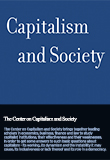..WERNER ERHARD
Current Academic Papers
available at

Author Page
Werner Erhard’s Curriculum Vitae
Putting Integrity Into Finance:
A Purely Positive Approach,
By Werner Erhard and
Michael C. Jensen
Published by Columbia University's
Center On Capitalism and Society
Volume 12, Issue 1, May 2017
Working Paper by
Werner Erhard and
Michael C Jensen
Working Paper by
Werner Erhard and
Michael C Jensen
Working Paper by
Werner Erhard
and Michael C Jensen
Discussion With
Werner Erhard and
Professor Jonathan D. Moreno
A New Paradigm of Individual, Group and Organizational Performance
|
Abstract:
Werner Erhard discussing A New Paradigm of
Performance BARTLEY J MADDEN, Senior Fellow at the National Center for Policy Analysis (NCPA), writes in his book, : "Werner Erhard, Michael Jensen, and their Barbados Group colleagues – hereafter simply termed “EJB” – have developed a new paradigm for individual, group, and organizational performance. EJB’s new paradigm emphasizes how a person’s worldview shapes and constrains his or her perceptions. Their paradigm dives deep into the source of performance, which is not accessible by mere linear cause-and-effect analysis. EJB assert that the level of performance that people achieve correlates with how work situations occur to them. Additionally, language – including what is said and unsaid in conversations – plays a dominant role in how situations occur to the performer. Therefore substantial gains in performance are more likely to be achieved after management gains an insightful understanding of how employees perceive the world and then orchestrates changes that make sense to employees and elicit enthusiastic support. EJB make the following distinctions to explain the logic of their approach to improving performance: Action is a correlate of the way the circumstances on which and in which a performer is performing occur (show up) for the performer… “Occur” does not require the performer to pay any attention to, think about, understand, analyze, or interpret that which is registered. …The world we interact with (act on and by which we are acted on) is the so-called objective world. However, while most of us don’t give any thought to it, in a fundamentally important sense the world we actually respond to and react to is the world as we perceive it, what we have termed the occurring world. …If we are dealing with life as lived, or performance as lived (the perspective of this new paradigm of performance), seeing and treating the objective and occurring worlds from the perspective of them being two distinct and separate worlds obscures the way we actually live life and love performance… The as-lived perspective allows access to the source of performance. An insightful presentation of the application of these ideas is provided by Barbados Group members Steve Zaffron and Dave Logan in their book The Three Laws of Performance. Zaffron and Logan describe how employees – and people in general – have a deeply felt default future: that is, what they believe they know will happen. This strongly influences how the world occurs to them and, hence, their performance. We all use descriptive language to create “facts” and to describe our reality; this type of language, more often than not, binds and constrains us. Rewriting the future involves dealing with the past so that it no longer constrains us. In this way we can create space for new possibilities. Rewriting our default future involves generative language – a language composed of declaration, commitment, promises, and requests. Generative language is really about transforming, rather than describing, how a situation occurs. A future we create for ourselves and others, one that offers high potential rewards for everyone involved, is most likely to be achieved, say Zaffron and Logan, through effective leadership. This entails that: (1) leaders have a say, and give others a say, in how situations occur; (2) leaders master the conversational environment; and (3) leaders listen for the future of their organizations. In a nutshell, the success of managers’ change initiatives depends upon how successfully they analyze how the world occurs to their employees. A centerpiece of EJB’s new paradigm is the emphasis on integrity, on keeping one’s word; this has a significant impact on performance. Jensen says it well: Integrity is important to individuals, groups, organizations and society because it creates workability. Without integrity, the workability of any object, system, person, group or organization declines; and as workability declines, the opportunity ofr performance declines. Therefore, integrity is a necessary condition for maximum performance. As an added benefit, honoring one’s word is also an actionable pathway to being trusted by others. Academic Papers and Presentations
Other Links
|





